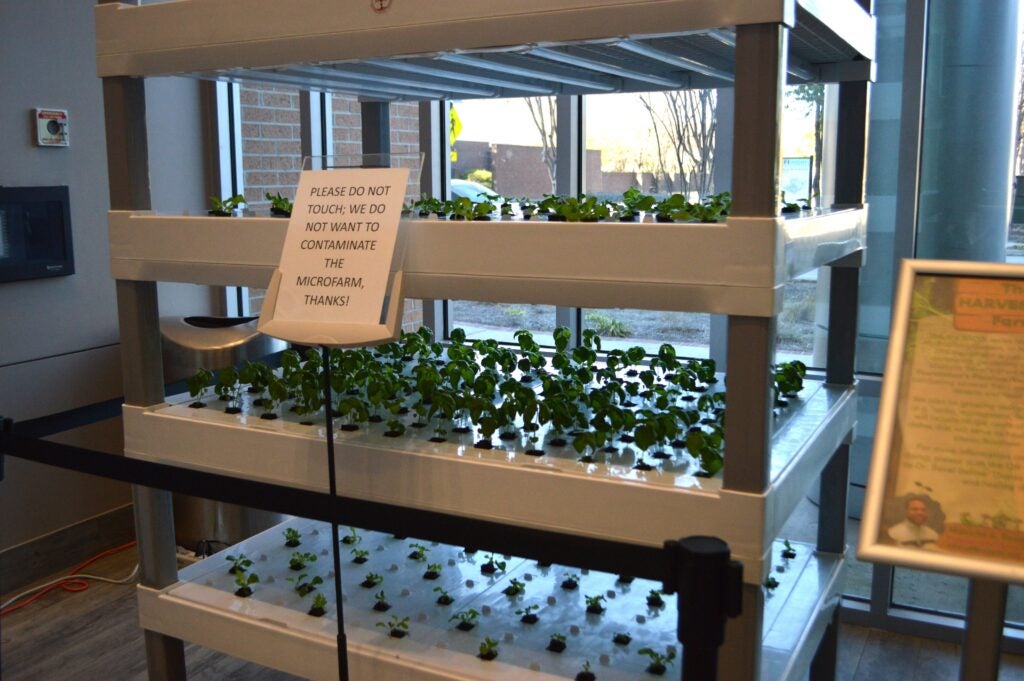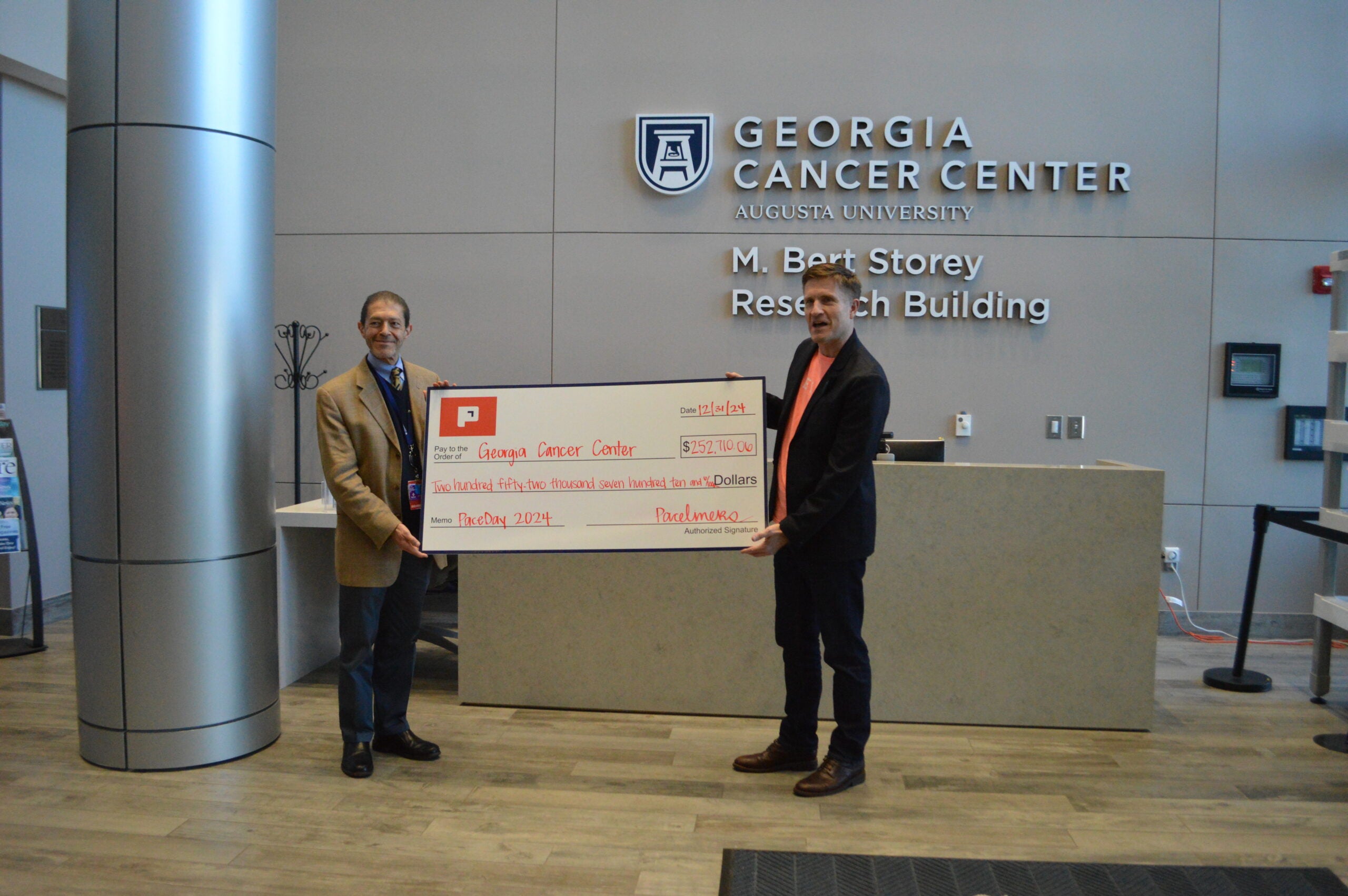Paceline, an Augusta-based movement of communities and organizations dedicated to ending cancer, presented a check of more than $250,000 to the Georgia Cancer Center (GCC) from its 2024 fundraising season.
Hurricane Helene disintegrated the Paceline’s plans for its signature annual fundraiser bike ride, PaceDay, however, $252,710.06 was still raised for the GCC thanks to the support of Paceline’s participants as well as local businesses.
“We’re really proud, the community really stood up to the challenges,” said Martyn Jones, president of Paceline. “We’re super resilient.”
The impact of over $250K
“This is huge,” said Dr. Jorge Cortes of the hefty donation.
A long term goal for the GCC, according to Dr. Cortes, is to obtain National Cancer Institute (NCI) designation. The NCI recognizes cancer centers around the county that meet rigorous standards for transdisciplinarity, state-of-the-art research focused on developing new and better approaches to preventing, diagnosing and treating cancer.
Cortes said that being an NCI-Designated Cancer Center would greatly help the GCC expand its research.
“This is why this seed money is so critical, because not only can we get more grants, but it’s very attractive to attract more faculty to come here and work at the Georgica Cancer Center,” he said.
Paceline’s contributions to continuing cancer research in Georgia
Since its inaugural event in 2019, Paceline has raised almost $1.7 million for cancer research, and is on the road to $2 million in 2025.
The Paceline community has funded 26 innovative cancer research projects over the past six years, from cancer prevention to advancing treatments for multiple types of cancer.
A hydroponic garden on display in the lobby of the GCC’s M. Bert Storey Research Building is evidence of this.
The RADIX series Modularized Vertical Hydroponic Garden was made possible through a Paceline grant and installed in 2023, with research led by Dr. Malcolm Bevel.
The miniature garden is intended for the growing of herbs, microgreens and leafy greens and focuses on cancer prevention, addressing issues relating to poor health particularly in underserved areas where fast food is more prevalent. Furthermore, Paceline awarded grants to six university researchers last May.











